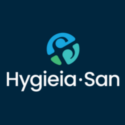ANSWERING YOUR QUESTIONS?
FAQ's
FAQ
Frequently Asked
Questions
Yes, absolutely. Hypochlorous acid is a non-hazardous, non-corrosive that can be used in many applications.
Made only from two components, salt and water, which are electrolysed to formulate a very powerful disinfectant, that is safe to use on food surfaces, in drinking water, hand sanitiser, and approved for all agriculture, horticulture and veterinary areas.
Toucan Eco lets you make your own multi-surface disinfectant cleaner from just water, salt and electricity that kills up to 99.9999% of germs.
It’s safe and environmentally-friendly, and replaces 80% of chemical cleaners and the single use plastic bottles they are supplied in.
Yes, it does. It’s a proven and effective disinfectant and cleaning solution with a very high kill rate of up to 99.9999%, with a fast contact time and minimal regrowth. It is a 100 x more powerful than chlorine and bleach.
It has a Broad-Spectrum Antimicrobial Activity. Hypochlorous acid is highly effective against a wide range of pathogens, including bacteria, viruses, fungi, and spores. It is capable of killing various harmful microorganisms that cause infections and diseases.
The solution is also a mild surfactant, providing clean, smear-free surfaces.
Our hypochlorous acid has been approved as part of the EU Biocidal Products Regulation (BPR, Regulation (EU) 528/2012) for uses PT1-5:
PT1: Human hygiene.
Products in this group are biocidal products used for human hygiene purposes, applied on or in contact with human skin or scalps for the primary purpose of disinfecting the skin or scalp.
PT2: Disinfectants and algaecides not intended for direct application to humans or animals.
Used for the disinfection of surfaces, materials, equipment and furniture which are not used for direct contact with food or feeding stuffs.
PT3: Veterinary hygiene.
Used for veterinary hygiene purposes such as disinfectants, disinfecting soaps, oral or corporal hygiene products or with anti-microbial function. Used to disinfect the materials and surfaces associated with the housing or transportation of animals.
PT4: Food and feed area.
Used for the disinfection of equipment, containers, consumption utensils, surfaces or pipework associated with the production, transport, storage or consumption of food or feed (including drinking water) for humans and animals.
PT5: Drinking water.
Used for the disinfection of drinking water for both humans and animals.
This depends on your requirents both for where it is going to be used, and the volume of disinfectant you require.
- Toucan Eco eSpray is ideal for home/domestic use.
- Toucan Renew is perfect for small businesses, coffee shops and cafe's, bakeries etc.
- For commercial users, medium and large sizes, the Centrego Eco systems can be tailor made to suit your requirements.
It can be used on surfaces, equipment, floors, toilets, and water treatment, so an idea of your business will help us suggest the best ptoduct fro your needs.
A Versatile Application. Hygiene-San can be used in various forms, such as sprays, wipes, and solutions, making it versatile for different disinfection needs. It can be applied to surfaces, medical instruments, and even used for wound care and sanitizing air and water.
It protects the marine environment, disinfects drinking water, combats Legionella, and is used to safely disinfect and clean in everything from fish processing to carpet cleaning, salad packing to flower cultivation and dairy farming.
Hypochlorous is even used to treat wounds, burns and infections in humans and pets – it’s approved by the US Food and Drug Administration for this.
And it’s also being used as part of Project India to help make the world’s polluted water safe to drink in third world countries and areas of humanitarian disaster.
With developments in technology, smaller devices can now make the solution on demand and onsite. In the UK, more and more companies are now proving you don’t have to use toxic, environmentally-damaging and expensive synthetic chemicals to disinfect and clean workplaces while saving single-use plastic bottles at the same time.
Contact us by phone, email or the contact form on this website. We will need to know a little about you and your market sector or current business operations.
To be completed



